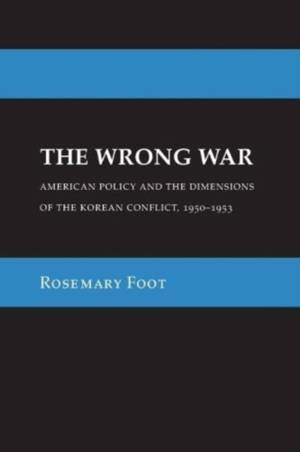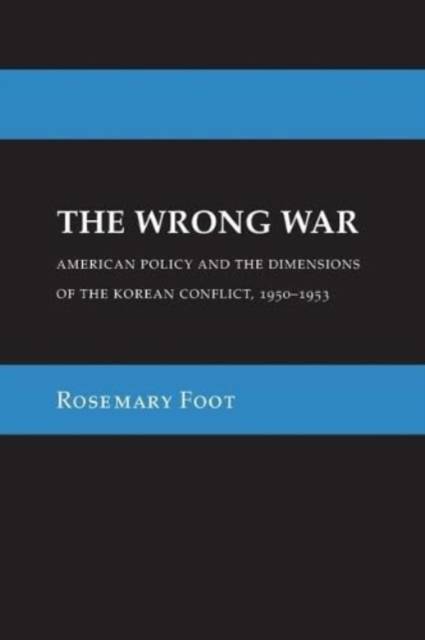
- Afhalen na 1 uur in een winkel met voorraad
- Gratis thuislevering in België vanaf € 30
- Ruim aanbod met 7 miljoen producten
- Afhalen na 1 uur in een winkel met voorraad
- Gratis thuislevering in België vanaf € 30
- Ruim aanbod met 7 miljoen producten
Omschrijving
In 1951, General Omar Bradley declared publicly that war with China would involve the United States "in the wrong war, at the wrong place, at the wrong time, and with the wrong enemy." Despite the stated intent of the U.S. to keep the Korean conflict from spreading, the debate on extending the war was far more intense and protracted than previous accounts of this period have suggested.
Concentrating on the debate over expansion, Rosemary Foot reveals the strains it caused both within the U.S. bureaucracy and between America and its North Atlantic allies. She supplies important new information on the U.S. government's appraisal of Sino-Soviet relations between 1950 and 1953, and makes clear that a high proportion of U.S. officials came to recognize the limited nature of Soviet support for China. Explaining why the Eisenhower administration nearly unleashed nuclear weapons on China in the spring of 1953, Foot demonstrates that the Korean war would very likely have grown into a conflict of major proportions if the Chinese and North Koreans had not conceded the final issue of the truce talks--the question of the voluntary repatriation of prisoners of war.
Specificaties
Betrokkenen
- Auteur(s):
- Uitgeverij:
Inhoud
- Aantal bladzijden:
- 300
- Taal:
- Engels
- Reeks:
Eigenschappen
- Productcode (EAN):
- 9781501772061
- Verschijningsdatum:
- 15/09/2023
- Uitvoering:
- Paperback
- Formaat:
- Trade paperback (VS)
- Afmetingen:
- 156 mm x 234 mm
- Gewicht:
- 449 g

Alleen bij Standaard Boekhandel
Beoordelingen
We publiceren alleen reviews die voldoen aan de voorwaarden voor reviews. Bekijk onze voorwaarden voor reviews.











